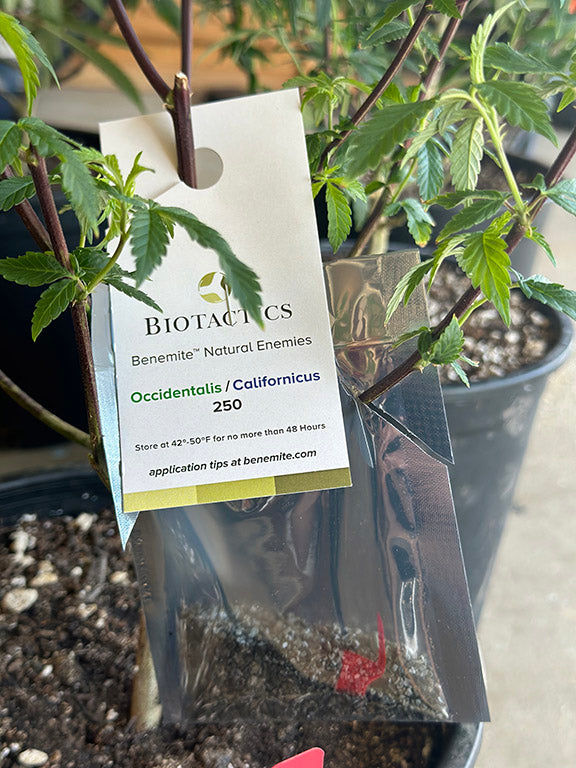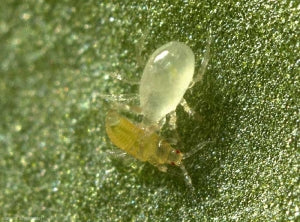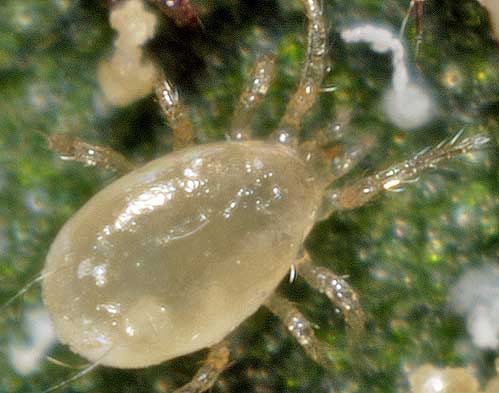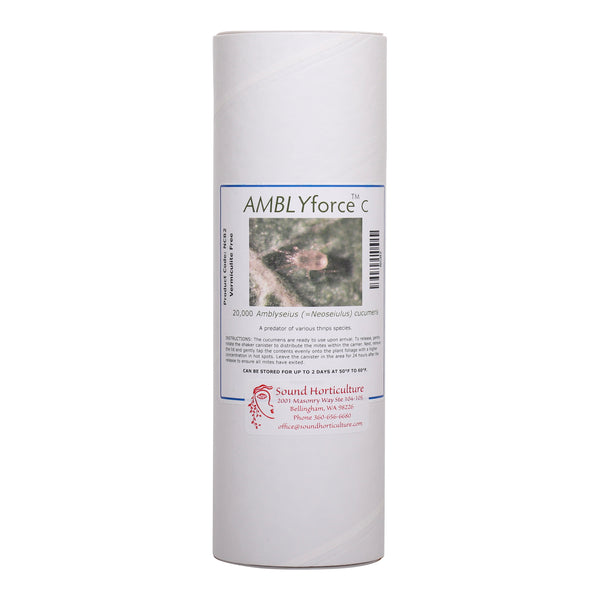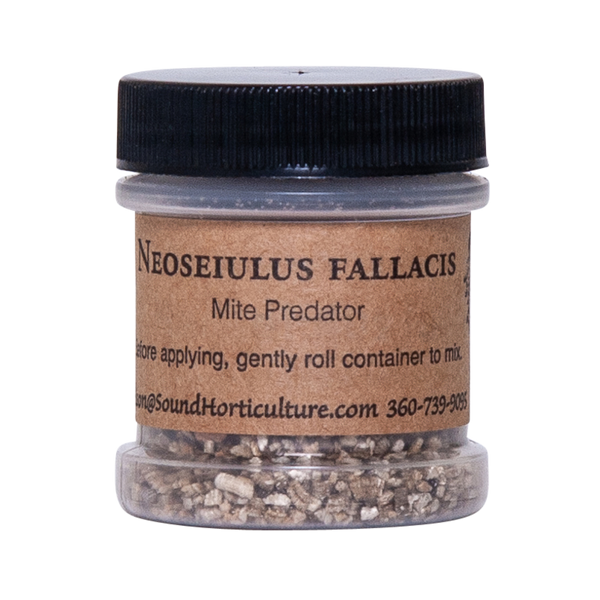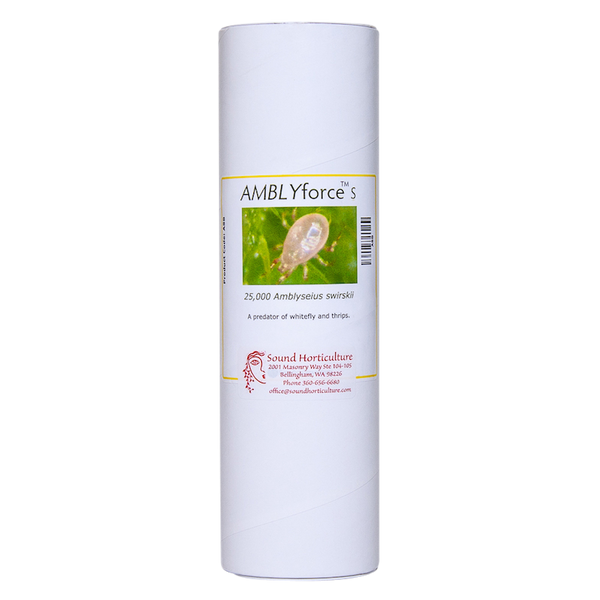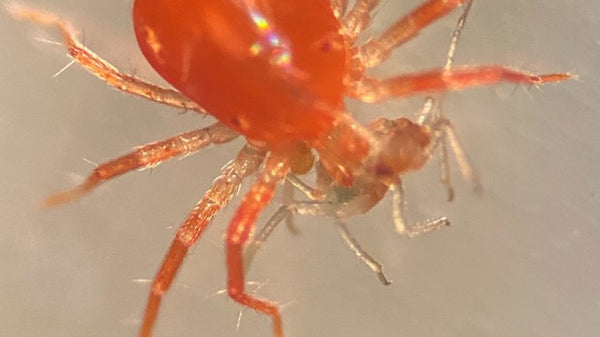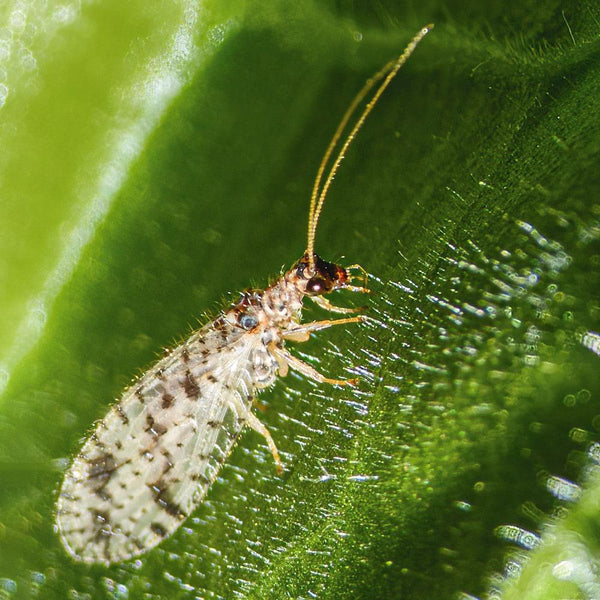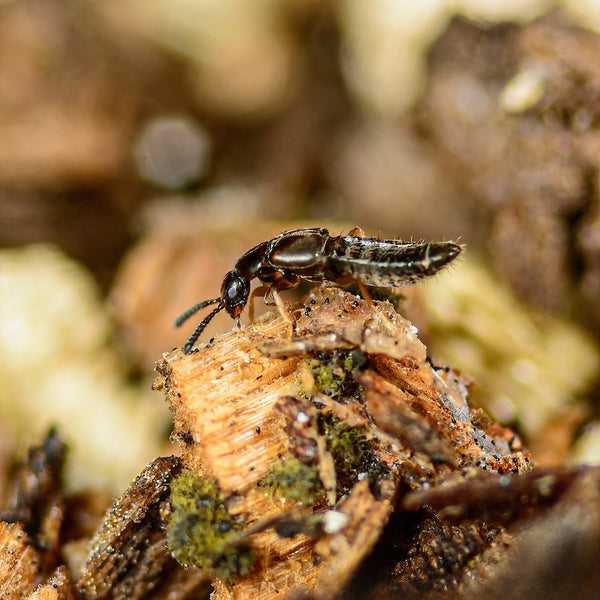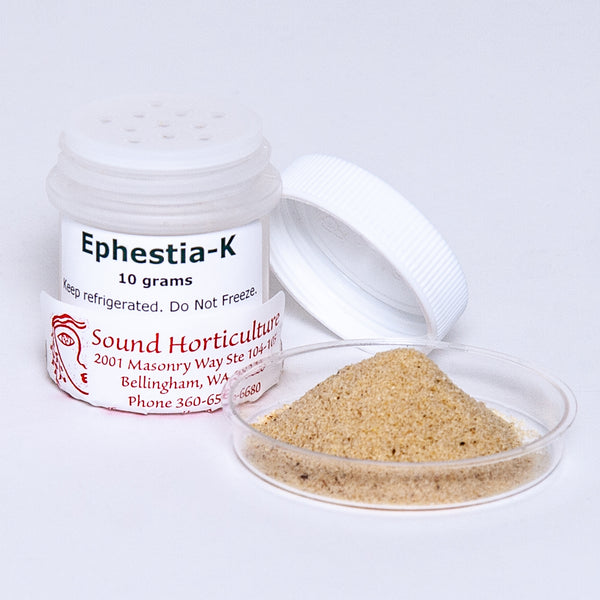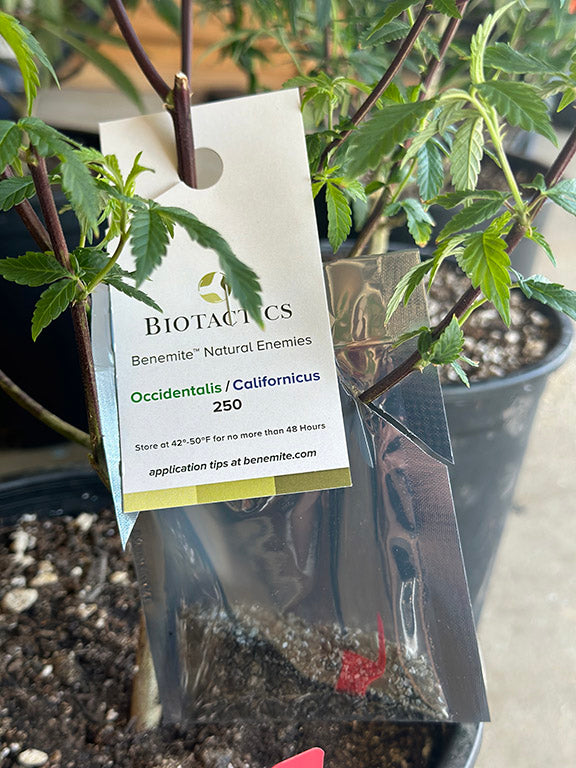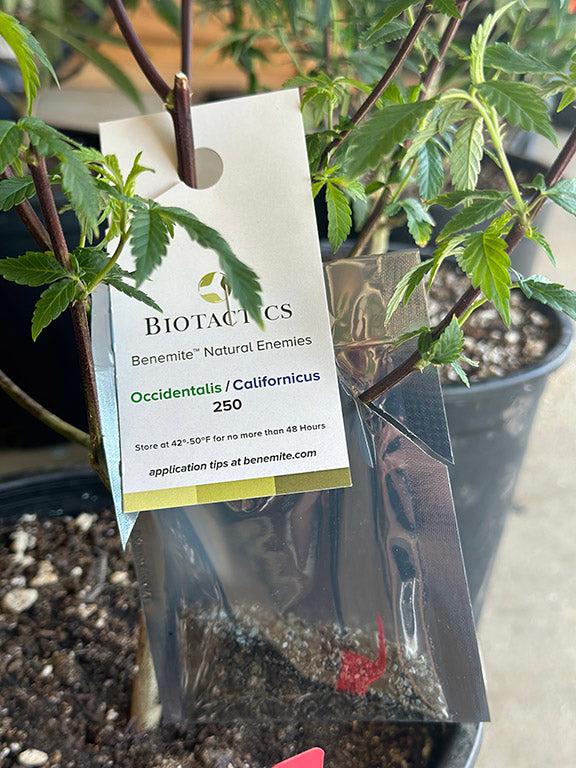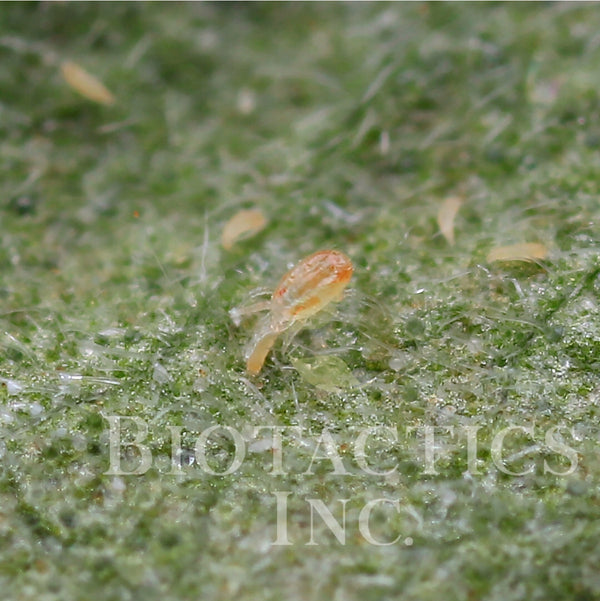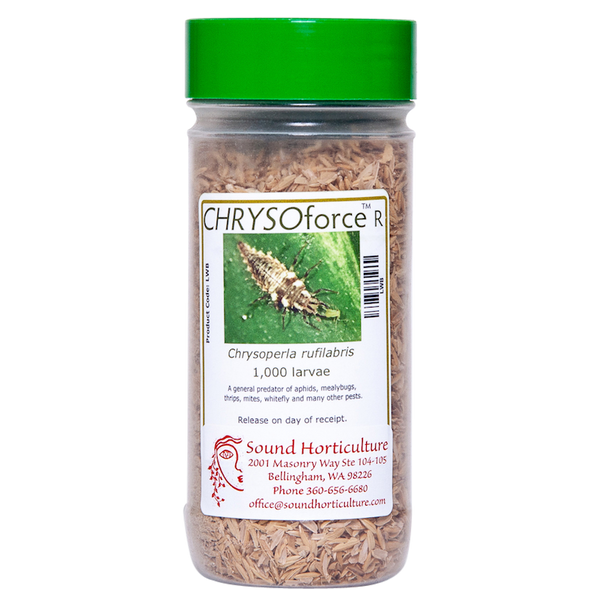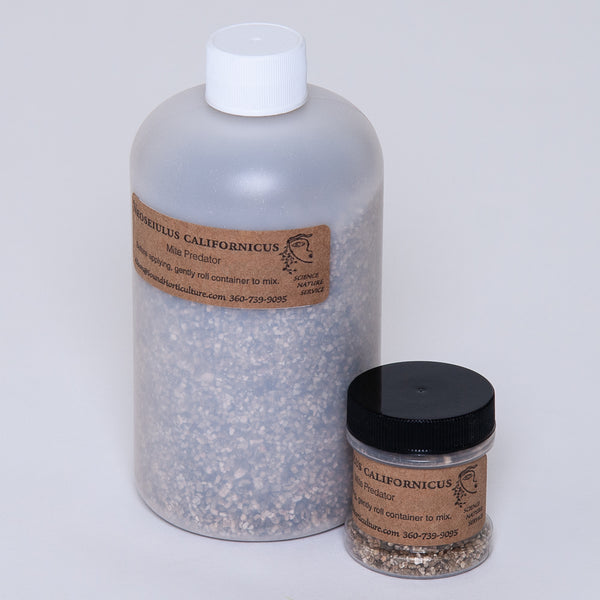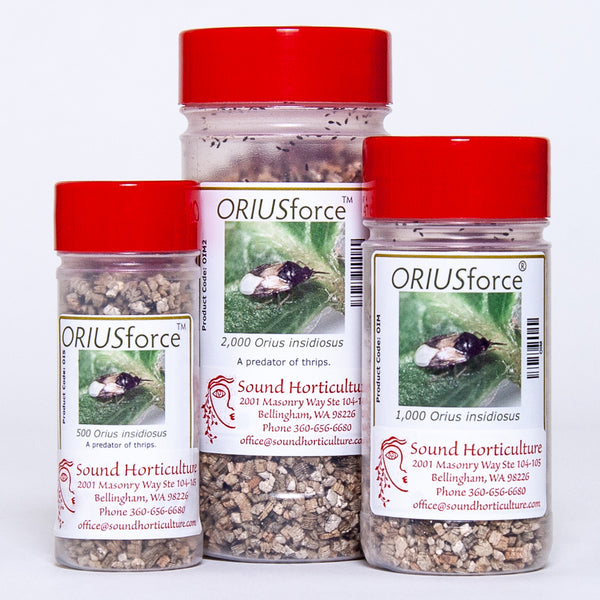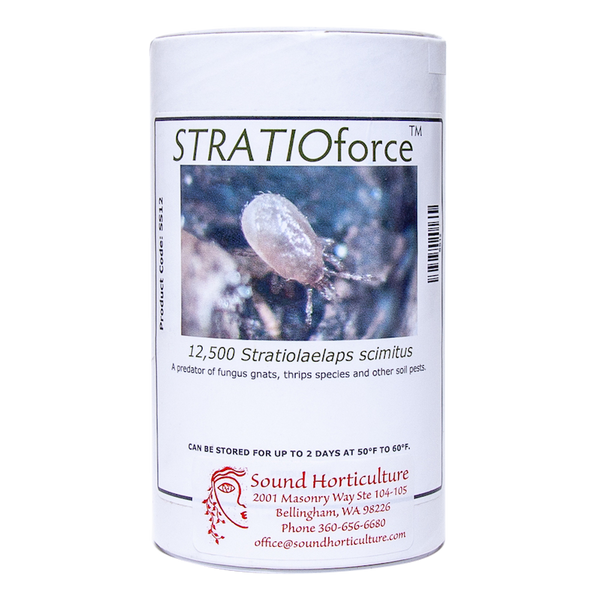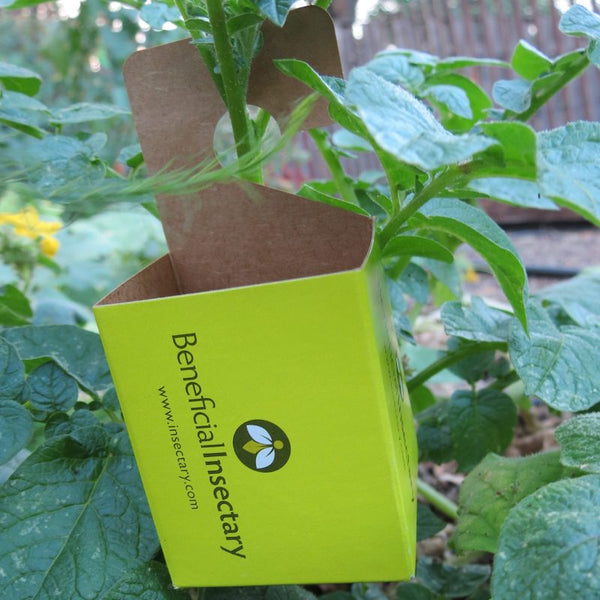Generalist Predators
GENERALIST PREDATORS are the creatures, by definition, that feed on a wider array of pests or even pollen resources throughout their life cycles. Many insects do this to a minor degree, including certain beneficial predator mites, but for the sake of this listing we will start with just a few common generalist insects and spark the conversation.
Most generalist predator insects are not commercially available from insectaries. For field production we suggest building habitat to encourage free biocontrol, and augmenting where you need to. We offer a few helpful creatures here that might be of interest, especially when integrated together with your more specific Aphid predators and Thrips predators (see Aphids and Thrips). We find that sometimes adding a layer of periodic generalist predators to the system can enhance greatly the control a grower can achieve.
A great example of seriously ravenous generalist predators are the native ground nesting beetles, which consume a wide variety of prey as they scavenge through their soil environment. In field production it is strongly recommended that farmers do everything that they can to create stable, undisturbed habitat for beetles, spiders and other beneficial predators who will work to keep pest populations in check. Taking a wider ecological view, we would of course also want you to consider birds (swallows, wrens, robins, etc.) as very important aspects of your biological system. Bats would also be encouraged, as voracious feeders of flying insects.
Look forward to additional postings on this important topic, and if you need further information, we strongly recommend the following publication: Farmscaping to Enhance Biological Control, published by ATTRA. The Farmscaping measures that we like to discuss with farmers have many benefits:
- A reduction of pesticide use
- Savings on pesticide costs
- Reduced risk of chemical residues on farm products
- A safer farm environment and more on farm wildlife
Generalist predators in greenhouse production are viewed a little differently. As opposed to more specific predators and parasitic wasps, they will feed on a variety of pests. Predators like Green Lacewings are good examples of generalist predators that will work well for growers in the greenhouse environment, gravitating to aphids and other “large” juicy prey first, and then only later, after exhausting those resources, move on to other smaller prey. Orius, also known as Minute Pirate Bug, will feed on Western Flower Thrips but also requires a nice source of pollen. There are many things that the greenhouse grower, in a more protected environment, can still do to encourage a natural diversity of predator insects in this “closed system”. We can add additional forage and fodder and protection to lure natural aphid predators like hover and syrphid flies into the operation, by adding pollen producing plants, or even add banker plants which can help establish their presence and sustain them. We can provide more information about these ideas and options.

